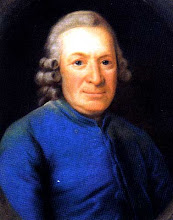The following quotation comes from a review article that is being published this month.
Researchers are becoming aware that autism is another neuroinflammatory condition that can be triggered in animal experiments. Terbutaline, a bronchodilator also used to arrest preterm labor, has been associated with the development of human autism. In animal experiments, terbutaline given early, also induce a condition that appears to be like autism. Neuroinflammation, mostly associated with innate immunity, characterized by activation of microglia and astroglia, as well as increased cytokines and chemokines, has recently been documented in post mortem studies of autism brains and in the animal damaged by neuroinflammation.(REF/FULL TEXT)"While peripheral immune access to the central nervous system (CNS) is restricted and tightly controlled, the CNS is capable of dynamic immune and inflammatory responses to a variety of insults. Infections, trauma, stroke, toxins and other stimuli are capable of producing an immediate and short lived activation of the innate immune system within the CNS. This acute neuroinflammatory response includes activation of the resident immune cells (microglia) resulting in ... the release of inflammatory mediators such as cytokines and chemokines. Chronic neuroinflammation is a long-standing and often self-perpetuating response that persists long after an initial injury or insult. ... The sustained release of inflammatory mediators works to perpetuate the inflammatory cycle, activating additional microglia, promoting their proliferation, and resulting in further release of inflammatory factors.
Neurodegenerative CNS disorders discussed are multiple sclerosis (MS), Alzheimer's disease (AD), Parkinson's disease (PD), Huntington's disease (HD), and amyotrophic lateral sclerosis (ALS)."(REF/ FULL TEXT)
Another 2009 article that reinforces the suggestion that autism and neurodegenerative diseases are central nervous system autoimmune diseases skewed towards a proinflammatory bias :
Finally, Paul Ashwood writes this. I would highly recommend you read the full text of his article:This study determined immune activities in the brain of ASD patients and matched normal subjects by examining cytokines in the brain tissue. Our results showed that proinflammatory cytokines (TNF-alpha, IL-6 and GM-CSF), Th1 cytokine (IFN-gamma) and chemokine (IL-8) were significantly increased in the brains of ASD patients compared with the controls. However the Th2 cytokines (IL-4, IL-5 and IL-10) showed no significant difference. The Th1/Th2 ratio was also significantly increased in ASD patients. Conclusion: ASD patients displayed an increased innate and adaptive immune response through the Th1 pathway, suggesting that localized brain inflammation and autoimmune disorder may be involved in the pathogenesis of ASD.
Autism spectrum disorders (ASD) are part of a broad spectrum of neurodevelopmental disorders known as pervasive developmental disorders, which occur in childhood. They are characterized by impairments in social interaction, verbal and nonverbal communication and the presence of restricted and repetitive stereotyped behaviors. At the present time, the etiology of ASD is largely unknown, but genetic, environmental, immunological, and neurological factors are thought to play a role in the development of ASD. Recently, increasing research has focused on the connections between the immune system and the nervous system, including its possible role in the development of ASD. These neuroimmune interactions begin early during embryogenesis and persist throughout an individual's lifetime, with successful neurodevelopment contingent upon a normal balanced immune response. Immune aberrations consistent with a dysregulated immune response, which so far, have been reported in autistic children, include abnormal or skewed T helper cell type 1 (T(H)1)/T(H)2 cytokine profiles, decreased lymphocyte numbers, decreased T cell mitogen response, and the imbalance of serum immunoglobulin levels. In addition, autism has been linked with autoimmunity and an association with immune-based genes including human leukocyte antigen (HLA)-DRB1 and complement C4 alleles described. There is potential that such aberrant immune activity during vulnerable and critical periods of neurodevelopment could participate in the generation of neurological dysfunction characteristic of ASD.
Damage or Disruption?
The PURSOR protocol has been extremely effective in ALS. It may be that irreversible changes occur in the child with autism. However, if the changes are not permanent, neuroinflammation and the autistic behavioral abnormalities may very well be remitted with PURSOR.





No comments:
Post a Comment